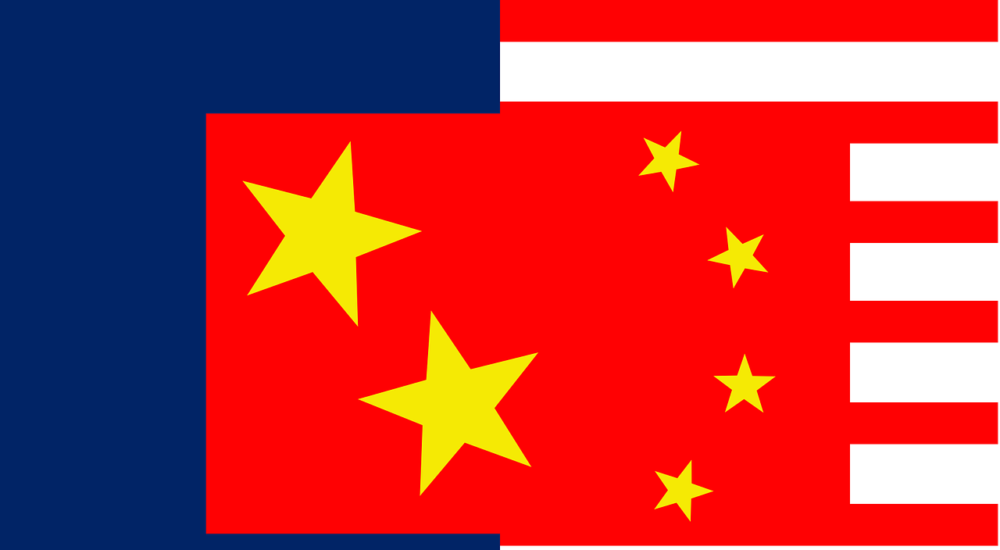China, China, China
In the post-election haze that has been filled with bizarre yet somehow normal tweets by the President, conspiratorial and baseless proclamations from Republican voters, and silence from the Party leaders, allegations of voter fraud, and finger pointing on the Democratic side about down ballot races, China has become the anchor of the largest global free trade area in the world.
Yes, Communist China has brokered the largest trade agreement in history. This agreement includes the democratic states of Japan, South Korea, and Australia. According to Axios, “China has stepped into Uncle Sam’s shoes, and now anchors the Regional Comprehensive Economic Partnership, or RCEP, an area covering 2.4 billion people and 1/3 of all the economic activity on the planet.”
This Asianic hegemony reminded me of a book I recently read by political scientist, Samuel P. Huntington, The Clash of Civilizations and the Remaking of World Order. Incredibly, the incorporation of Australia into the RCEP would not be an outlier, according to Huntington. The chimera of trade policies coming out of Washington demonstrates the lack of an unclouded vision.
Huntington argues that conflict between major contemporary world civilizations will replace conflict between states or ideologies as the primary driver in geopolitics. According to Huntington, during the Cold War, the world was divided by ideological differences, democracy and communism, but for the first time in history we should no longer view the world as bipolar, or between competing ideologies, but eight major civilizations: Sinic, Japanese, Hindu, Islamic, Orthodox, Western, Latin American and Africa.
According to Huntington, the idea that non-Western societies would be Westernized through modernization is short-sighted; instead, modernization, economic prosperity, changing demographics, and religious resurgence have the opposite effect.
For Huntington, “The dangerous clashes of the future are likely to arise from the interaction of Western arrogance, Islamic intolerance, and Sinic assertiveness.”
China, China, China.
It can be argued that Huntington’s view is oversimplified; however, there is merit to his assertion that governments that share a cultural hegemony may form blocs to gain power and dominance on the world stage.
Unsurprisingly, most Americans do not care about the nuances associated with public policy or the field of political science. Americans do worry about the implications of these policies and how they impact their families. Tap root issues like rising healthcare costs, stagnant wages, and diminishing opportunities drive Americans.
Or as James Carville quipped in 1992, “It’s the economy, stupid.”
Perhaps, this is why the country elected a self-serving, amoral, deeply flawed narcissist, with no political experience as president in 2016; or why a 77-year-old Democratic Socialist upended the Democratic Party and would have likely won the nomination in 2016 without help from the Democratic Party establishment.
Meanwhile, America’s two major political parties are struggling to rediscover themselves. The Republican Party is financed by the business elites embodied in WSJ editorial board policies of free market economics, globalization, and pro-immigration.
On the other hand, since the Reagan Administration, white voters without a college degree have increasingly joined the Republican Party because of cultural issues such as abortion, religion, and patriotism—despite their economic interests. However, in the 2016 primaries, these voters turned to the populist’s policies promised by then candidate Donald Trump. The bold America First revival of industry stump speech, the promised reckoning with our trade partners particularly China, the inflammatory anti-immigration rhetoric, and the anti-globalization buzzwords connected.
Of course, it is not the carefully crafted and surgically targeted public policy that is needed; nonetheless, it is appealing to the fifty-year-old blue-collar worker who has seen his job shipped overseas. MAGA may be ambiguous and nonsensical, but it inspired hope, something no other candidate besides Bernie Sanders seemed to be able to offer.
Furthermore, the 2016 elections should have been a wakeup call for the Democratic Party. The Blue Wall of Pennsylvania, Michigan, and Wisconsin crumbled, and Hillary Clinton lost Ohio by eight points. According to Francis Fukuyama, the identity politics of the left has resulted in the Democratic Party losing favor with middle America and, in some cases, has pushed those hit hardest by free trade right into Trump’s and or Bernie’s arms. President Obama put it this way, “This idea of purity and you’re never compromised, and you’re always politically woke, and all that stuff-you should get over that quickly.”
Alas, the extreme elements in both Parties are dominating the narrative, while everyday Americans are still looking for their institutional reformer.
No wonder they believe the system is rigged.
Without the economic pressure needed, the Biden Administration will be tasked with getting the United States back on a policy centric agenda to combat what Huntington calls, “the rest against the West” realignment on the world stage.
Was the Trans-Pacific Partnership (TPP) perfect policy? No. However, it was the Obama Administration that warned in 2016, “China is negotiating a trade deal that would carve up some of the fastest-growing markets in the world at our expense.” The TPP was passed with bi-partisan support and signed into law by President Obama but was torpedoed by the Trump Administration before the agreement could be ratified.
Yes, Trump is the bull in the China shop, and withdrawing from the TPP was nothing more than his way of currying favor with his base.
Instead of our politicians in the pre-Trump era being honest with the American people about the advantages and disadvantages of free trade, Washington provided lackluster and ineffective retraining programs, more partisan gridlock, and zero solutions.
The result? Asianic states have found economic hegemony without the involvement of the United States for the first time in history. Are we witnessing nation states around the world seeking to modernize without becoming Westernized at the very moment the United States is seeing its influence and power peak? Time will tell…


